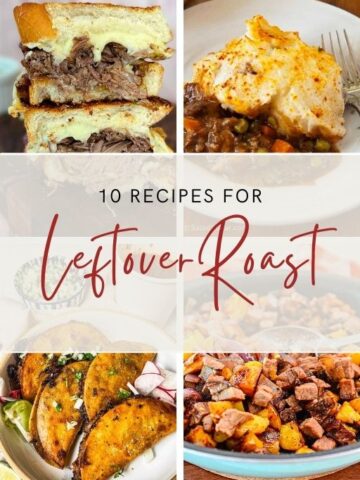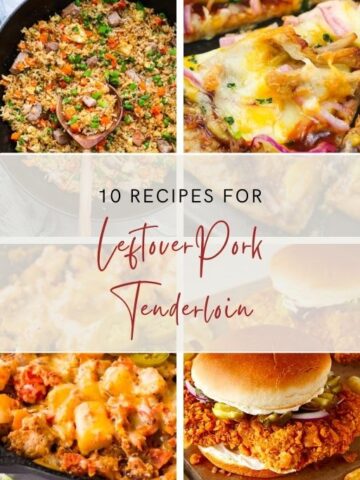Introduction to Oil Substitutes
Diving into my kitchen repertoire, I often find myself reaching for the vegetable oil, a trusty culinary companion. Yet there are moments when I yearn for a twist on tradition and seek substitutes for vegetable oil not only to jazz up my recipes but for a variety of reasons that range from health to availability, or even taste preference. It's like uncovering secret ingredients—each alternative brings its unique charm to dishes, be it baking that begs for moisture without the heaviness, or sautéing that calls for a smoke point suited to sizzle.
In this culinary exploration, we'll traverse the landscape of options such as the rich depths of olive oil, the creamy subtleties of butter, and the tender touch of applesauce, to the heart-healthy profiles of avocado and canola oils. Surprising stars like yogurt will make an appearance in our baking escapades, while coconut oil and sunflower oil offer their distinct flavors and healthful perks. From the stalwarts of healthy fats to oil-free hacks, who knew your kitchen could transform into an alchemist's lab for healthy cooking? So, let's set sail on this voyage of slick swaps and discover the myriad of ways to replace vegetable oil in recipes, making each dish an adventure in taste and wellbeing.
Understanding Fats in Cooking
Let's get straight to the heart of cooking: fats are the cornerstone of flavor and texture, the secret to that irresistible mouthfeel and rich satisfaction. The world of fats is vast, from luxurious butter to smooth olive oil, each lending its unique profile to our culinary creations. But it's not just about taste; fats carry heat, prevent sticking, and serve as a medium for cooking food evenly. They are essential in creating the flaky layers of a croissant or the tender crumb of a muffin, making them indispensable in baking.
The type of fat you choose can transform a dish, infusing it with subtle nuances or bold, distinctive notes. Consider the monounsaturated richness of avocado oil or the delicate, high-heat stability of canola oil. Furthermore, the health implications of fats are paramount; we're talking about heart-healthy options versus those pesky trans fats. The beauty lies in the balance, selecting oils rich in beneficial fats while keeping the overall health of the dish in mind. So, whether you're sizzling, searing, or stirring up a storm, remember that the choice of fat is pivotal to both the success of your recipes and the wellbeing of those who'll relish them.
Top Oil Alternatives for Baking
Diving into the sweet realm of baking, I've discovered that not all oils are created equal. Swapping out vegetable oil for applesauce is a revelation; it lends a moist texture and subtle sweetness to cakes and muffins, making it a darling of my low-fat baking experiments. If I'm aiming for a creamy consistency with a tang, then trading in oil for yogurt is a no-brainer – it's remarkable in coffee cakes and dense loaves. For the health-conscious among us, avocado oil stands out as a heart-healthy champion. With its mild flavor and high smoke point, it's the go-to I count on for those beloved chocolate chip cookies that emerge crispy on the edges yet chewy in the middle.
When the kitchen beckons me to play with flavors, I reach for coconut oil. Its tropical aroma whisks me away and gives an exotic twist to my banana bread. Scouring the pantry for the ultimate butter substitute, I strike gold with olive oil – a drizzle transforms savory scones into rich, Mediterranean-inspired wonders. Each of these oil alternatives not only caters to varying dietary needs but also enriches my baking with delightful, unexpected twists.
Healthy Liquid Oils for Frying and Sautéing
In the vibrant dance of sautéing and the high-heat waltz of frying, I've discovered that replacing vegetable oil with heart-healthy liquids can transform a simple sauté into a masterpiece. Take olive oil, for instance; a blissful drizzle not only imparts a nuanced flavor but also boasts a generous dose of monounsaturated fats. Ideal for a gentle fry or a low-heat sauté, I relish the moment it sizzles in the pan, releasing its earthy aroma.
Then there's the sleek, mild-tasting avocado oil. I find its high smoke point makes it my go-to for searing or frying at higher temperatures, all while cuddling my heart with its oleic acid richness. It's a sublime, nutrient-dense option that doesn't shy away from the heat.
And let's not overlook coconut oil, my tropical treasure for occasional indulgence. Whether it's for creating crispy delights or sautéing with a hint of sweetness, its saturated fat content is best enjoyed in moderation to maintain a balance of healthy fats.
These liquid gold alternatives are more than mere substitutes for vegetable oil; they're my secret ingredients for both healthy cooking and indulgent flavors. It's these small choices in oils that lead to a symphony of taste and well-being in every dish I craft.
Butter and Ghee: Richness in Flavor
Moving from standard oils to the lush realms of butter and ghee, I'm greeted with a sumptuous layer of richness that transforms any dish I'm crafting. In baking, when I fold butter into my concoctions, I'm not merely adding moisture; I'm infusing my treats with a buttery, indulgent flavor that vegetable oils can't match. It's a divine swap in cookies and cakes, where butter's presence is non-negotiable for that classic taste and tender crumb.
Then there's ghee, butter's sophisticated cousin, offering a hint of nuttiness without the water content, making it a sublime choice for high-heat cooking. Ghee elevates the flavors in my sautés and stir-fries to heights unknown to ordinary oils. And for those doughy breads emerging from the oven with gilded, flaky crusts? Ghee is the artisan's secret touch.
While each substitute carries its distinct character, it's crucial to use them judiciously, as they introduce more saturated fat into dishes. But in those moments when you're seeking that unmistakable richness, turning to butter or ghee might just be the perfect gustatory delight your recipe needs.
Creative Non-Fat Substitutes for Vegetable Oil
Delving into my kitchen ventures, I've unearthed a treasure trove of non-fat substitutes that add a twist to traditional recipes. Applesauce, a personal favorite, seamlessly slips into cakes and muffins, imparting a subtle sweetness and moist crumb, while trimming down the fat. It's a savory secret for low-fat baking that doesn't skimp on flavor. Equally intriguing, yogurt stands as a culinary chameleon, offering its creamy tartness to balance the sweetness in baked goods, and enhancing their tenderness. Yogurt in baking, especially Greek yogurt, is a brilliant hack for ensuring every bite is sumptuously soft without the added oils.
These oil alternatives aren't just about cutting calories; they bring their own unique profiles elevating a simple snack into a symphony of tastes and textures. By opting for applesauce or yogurt, you're not just tweaking the health quotient, you're embarking on an exploration of uncharted tastes. Whether it's the rustic charm of apples or the cultured tang of yogurt, these kitchen hacks make it easy to reimagine oil in recipes with healthful panache.
Diet-Specific Alternatives
Embarking on a vegan journey doesn't mean bidding farewell to sumptuous flavors and textures in your cooking. For the enthusiasts of plant-based diets, my cupboard brims with the alluring scent of coconut oil and the nutty undertones of avocado oil, perfect for sautéing and baking with a conscience as clear as the oils themselves. Plus, let's not forget the versatility of applesauce and mashed bananas, reigning supreme as the darling darlings in eggless baking - their natural sweetness and moisture lend a tender embrace to your favorite treats.
For those navigating the great seas of keto, I've hoisted my sails to discover that butter substitutes don't quite cut it. Instead, I place my bets on heart-healthy oils like olive oil, injecting a Mediterranean kiss into leafy salads, or perhaps a drizzle of MCT oil - a pure concentration of medium-chain triglycerides, ensuring that those high-fat needs are met without veering off course.
And when the quest is for a low-cholesterol life, sunflower oil shines its golden rays on my cookware, boasting a delicate flavor that doesn't overpower. Canola oil also enters the fray, offering a reliable and heart-healthy neutrality that's as gentle on the palate as it is on the heart. These substitutes are a tribute to the diversity of diet-specific needs, ensuring that flavor and health sail smoothly together.
Substitute Measurement Guide
Imagine you're standing in your sunlit kitchen, your apron dusted with flour, and in that critical moment, you realize you're out of vegetable oil. No need to panic! Let's simplify your pivot with a handy swap-out guide. Substituting fats isn't just a matter of 1-to-1; it's an art that can introduce exciting new textures and flavors to your favorite recipes. Firstly, when replacing vegetable oil in baking, here's what you'll need for substitutes for vegetable oil:
- Olive oil: Use three-quarters of the amount called for, since it's denser. So if your cake sings for a cup of vegetable oil, serenade it instead with ¾ cup of olive oil.
- Coconut oil: Go for equal parts here. Coconut oil’s richness is a divine blackout curtain for dry textures, enriching your baked treasures.
- Butter: Who doesn't love a dab of butter? Use it melted, in a one-to-one ratio, for a velvety, rich twist on the original.
- Applesauce: Halve the amount of oil called for and replace with applesauce for a guiltlessly moist masterpiece.
- Yogurt: Opt for three-quarters of the quantity of oil; its creamy tang enlivens every bite.
Keep this cheat sheet close at hand, a trusty scroll in your culinary repertoire. As surely as you'd zest a lemon for that extra zing, embrace these swaps and watch your dishes ascend to new realms of deliciousness. You're not just following a recipe; you're wielding a whisk as a wand, transforming the mundane into the magical.
Experimenting with Flavors and Textures
Embarking on an adventure through the myriad of vegetable oil substitutes is not just smart; it's a culinary delight waiting to unfold in your kitchen. Picture a Sunday morning, your apron dusted in flour, as you swap out the usual oil for a dollop of unsweetened applesauce in your muffin batter. The result? A moist texture with a subtle sweetness that'll have your taste buds dancing.
Let's not forget the wonders of yogurt in baking, bringing a rich creaminess to each bite of your favorite cake, while also keeping the fat content in check. Imagine the joy in discovering the dense, moist crumb it creates, a little kitchen hack that yields big results. And when it comes to sautéing, dare to drizzle a touch of avocado oil instead. It's a heart-healthy choice that imparts a buttery note, perfect for elevating those weeknight stir-fries.
Creating oil-free recipes can be equally gratifying. Envision the pure satisfaction as you unveil a batch of brownies made velvety with puréed black beans, the rich cocoa flavor unmarred, the texture impeccable. It's these little twists and tweaks that can revolutionize your cooking repertoire. So, don't hesitate to reach for that jar of coconut oil or sprinkle of heart-healthy canola. The opportunity to enhance both taste and nutrition awaits with each inventive substitution.
The Final Drizzle: Summing Up the Swaps
And just like the final drizzle of a heart-healthy olive oil on a vibrant Caprese salad, we've reached the end of our flavorful journey through the world of substitutes for vegetable oil. Through the exploration of each delectable and healthful alternative, from the richness of avocado oil in your sautés to the unexpected delight of applesauce in your sweet baked goods, we've seen how simple swaps can not only preserve the essence of our cherished recipes but also open up a spectrum of culinary possibilities.
By integrating these kitchen hacks into our routines, we dabble in the art of healthy cooking and low-fat baking, all the while celebrating the diversity of flavors and textures that these oil alternatives contribute. Heart-healthy oils, non-dairy delights, and oil-free recipes showcased their prowess, standing as testament to the joy of experimentation. As we bid our farewells, remember that the key to unlocking a treasure trove of taste and health is but a simple substitute away. So, arm yourself with this knowledge and sally forth into your kitchen adventures, for each swap is not just a substitution, it's an invitation to culinary innovation.
Looking for recipes?
Try these recipes: foil grilled veggies, Olive Oil Crostini, and Olive Oil Sorbet.
Did You Find this Article About Substitutes for Vegetable Oil Helpful?
Please leave a comment and rating below, also let me know what you thought of this recipe. Be sure to snap a picture and tag me on Instagram @Meghanitup Or share it on Pinterest so that I can follow along.
HUNGRY FOR MORE? You can also follow along on Instagram and Pinterest for more recipe updates.





Comments
No Comments